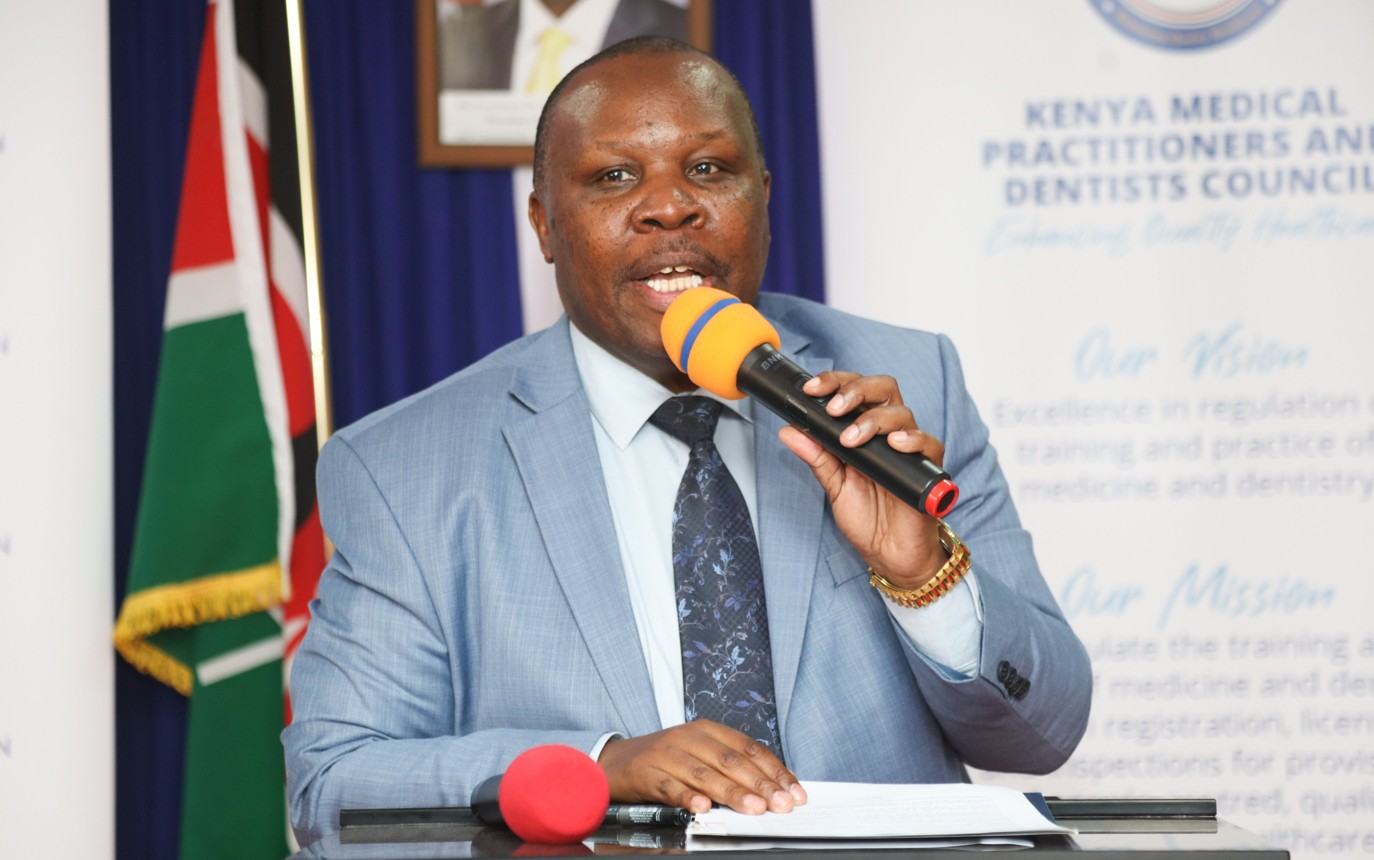Dr David Kariuki, Chief Executive Officer at the Kenya Medical Practitioners and Dentists Council, during the Bioethics forum in Nairobi/ photo: handout
Are you considering donating a kidney? To make an informed decision, you must understand the risks and benefits through a process known as informed consent.
Dr Mahmoud Merali, a psychologist at Aga Khan University Hospital, explained that there should be no form of coercion, even from family members.
“The decision to donate a kidney should be altruistic, where the person donating should be willing and ready to give out of goodwill. They need to understand the risks of what they are about to do before they do it from a certified psychologist,” he said.
He spoke on Thursday during a bioethics conference themed ‘Ethics and Healthcare’, organised by the Bioethics Society of Kenya (BSK) at the University of Nairobi.
He emphasised that the ethical consideration should be aimed at minimising harm to both the donor and the recipient.
Prof Merali said medical personnel should ensure that the person who has agreed to donate their kidney has been taken through necessary counselling before the practice begins at the facility.
His comments come as Kenya grapples with ethical concerns regarding human tissue donation, following allegations of kidneys for sale in one hospital.
The Bioethics Society of Kenya called on all
stakeholders to adhere to ethical standards when making medical decisions and
also when formulating policy standards to safeguard the rights of all.
Chief guest Dr David Kariuki, the Chief Executive Officer at the Kenya Medical Practitioners and Dentists Council (KMPDC), said health care workers should be guided by the laid-down ethical
tenets when practising, to safeguard the rights
of clients.
“More than 60 per cent of medical problems and cases are pegged on
ethical issues; medical practitioners need to look at the ethical standards
when practising to avert these problems. When you are faced with many patients
at a time, try as a medical practitioner to think what is ethically right to do
to be able to save all lives,” he said.
Key in the discussions was the issue of the affordability of
medical care and the ethical considerations that come with it. Dr
Abidan Mwachi, national chairman of the Kenya Medical Practitioners and Dentists
Union (KMPDU) said affordability should go hand in hand with ethical standards. He
cautioned against the notion of ‘poor medicine for poor people’, which he said
goes against the ethical standards that are already in place.
He said, “People should be guided by the principle of
utilitarianism when providing medical help to people. They should provide equal
services despite the financial situation of the client.” He further said that
affordability should not compromise the quality of the medical services being
offered.
Unethical practices were also pointed out in health
financial practices. Dr Dynesius Nyangau noted that ethical financial
requirements in health practices refer to the fair and transparent funding of
healthcare to ensure equity and access for all, especially marginalised
populations.
He said: “Kenya’s legal framework aligns with constitutional
guarantees and global health rights, but enforcement gaps persist. Ethics must
ensure financing reforms to achieve Universal Health Coverage by 2030.”
Nyangau said this requires institutionalising ethical audits in budgeting
and procurement, enhancing citizen participation, strengthening anticorruption
efforts and adopting equity-sensitive allocation models.
He added: “Sustainable financing should reduce
catastrophic out-of-pocket costs, thereby promoting social justice and
accountability in health systems.”
